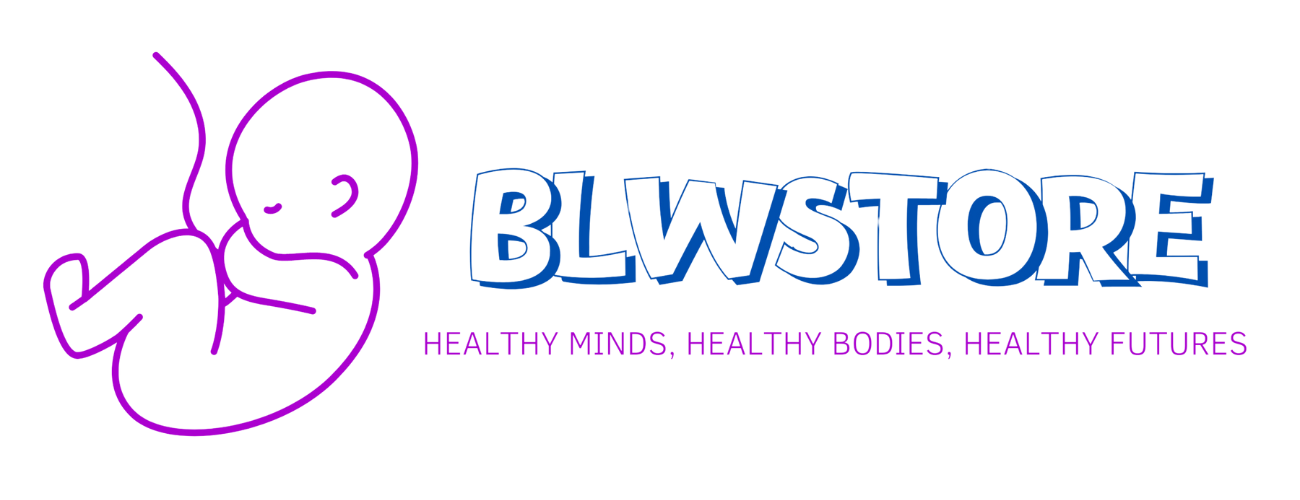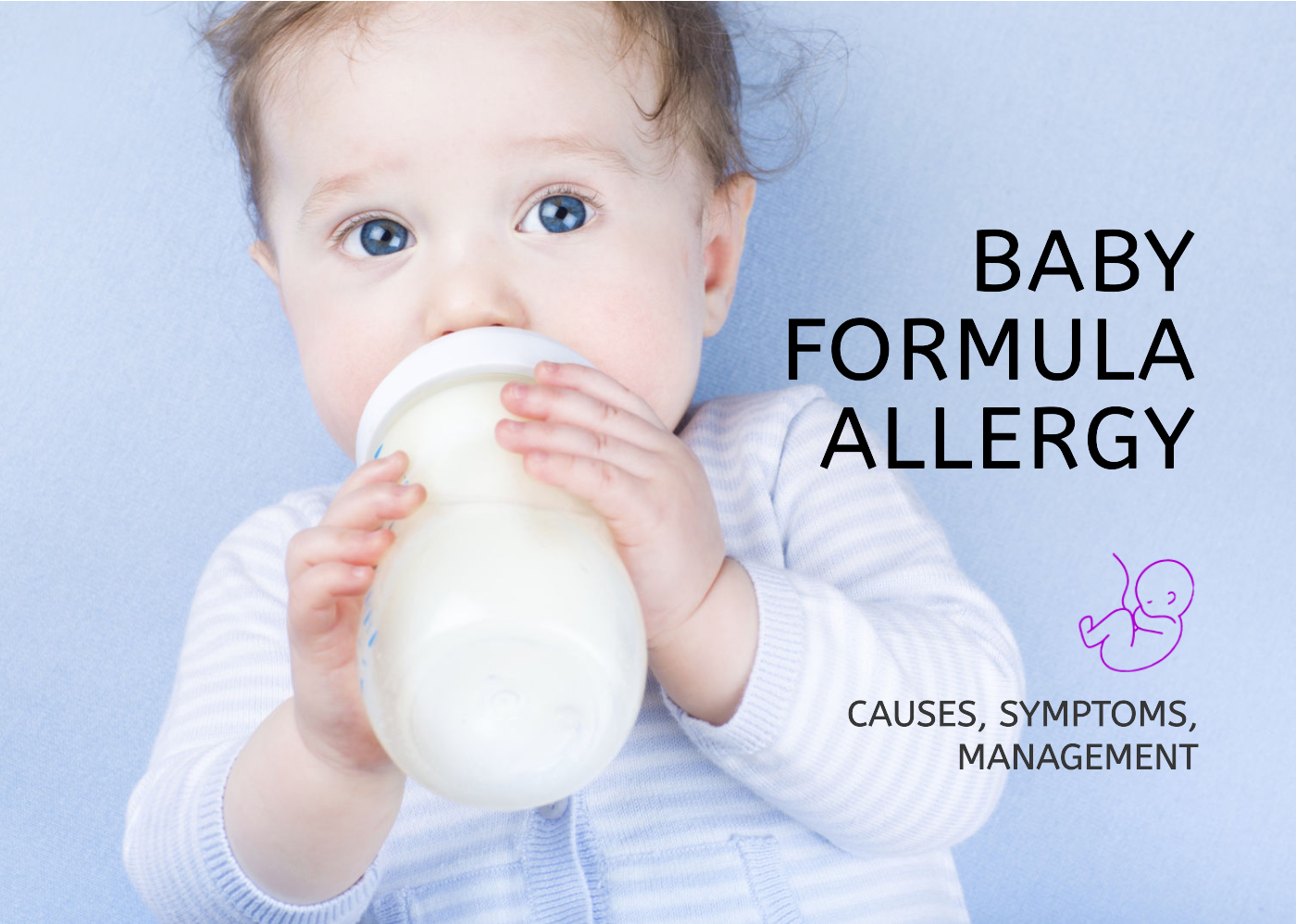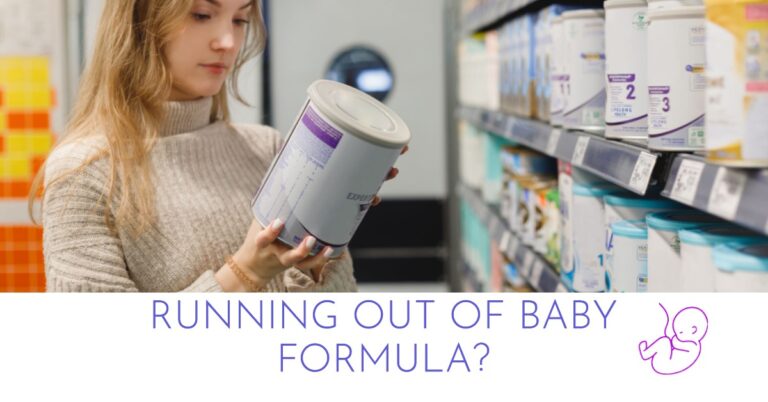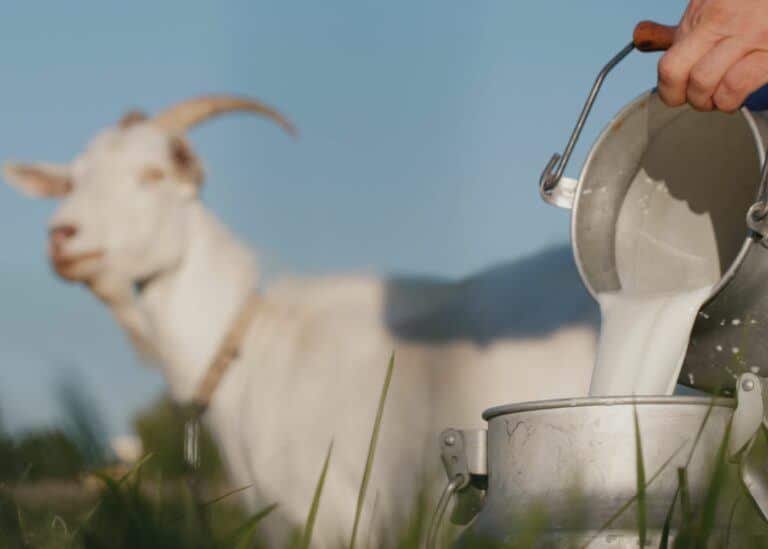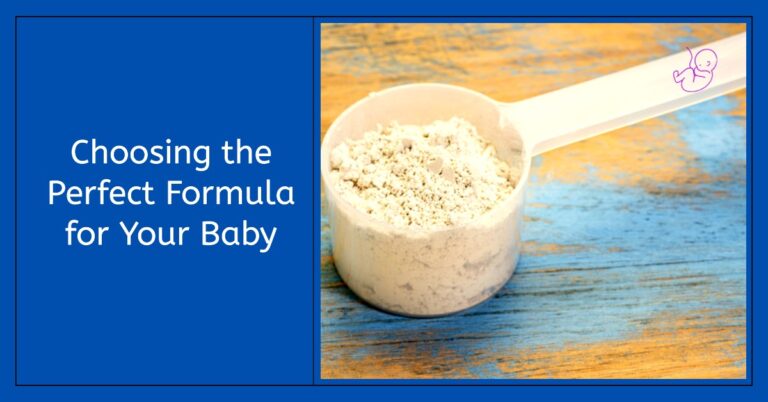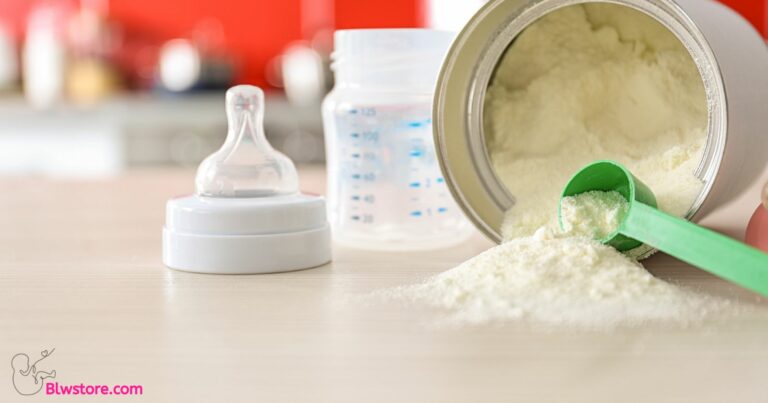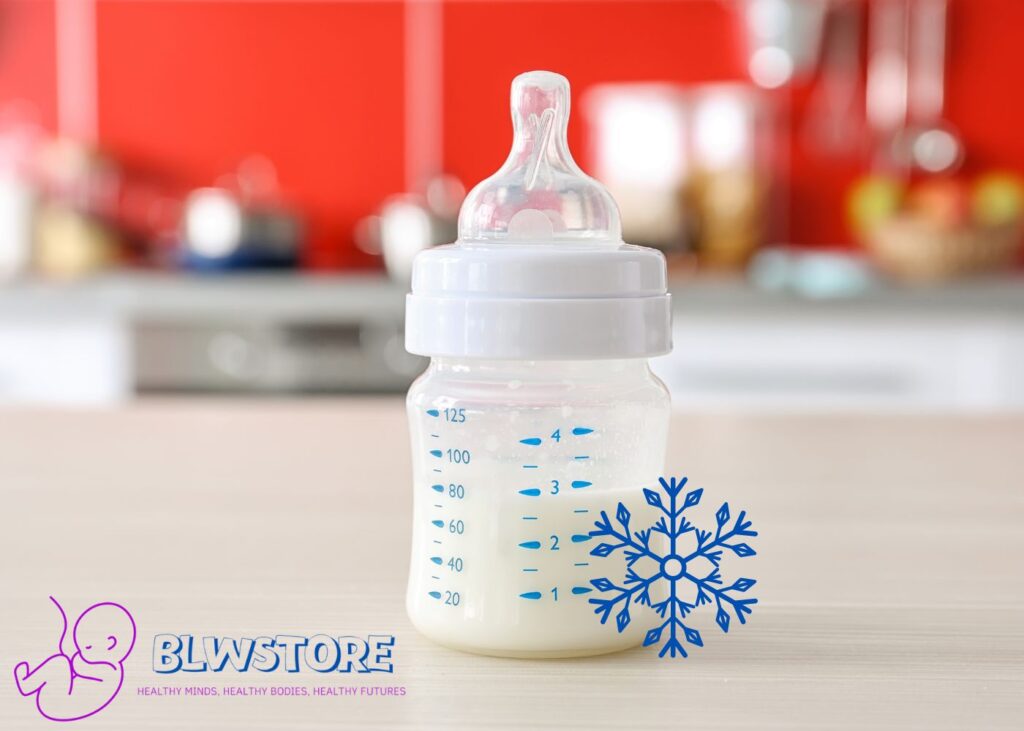
Many parents wonder about the dangers or benefits of giving cold formula to their babies.
With arguments for and against serving chilled formula, as well as concerns about risks and potential stomach discomfort, it’s understandable that parents are hesitant.
But don’t worry!
In this post, we’ll explore the safety of cold formula for babies and provide tips on best practices to follow.
Let’s get after it!
Can Babies Drink Cold Formula?
Yes they can, as long as they show no signs of digestive issues or discomfort.
However, it is essential to prioritize proper storage, preparation, and hygiene when handling your baby’s formula.
The Safety Of Cold Formula For Babies
There are conflicting arguments about the safety of feeding babies cold formula, with some experts suggesting that it is safe for healthy infants while others raise concerns about potential risks such as digestive issues and a weakened immune system.
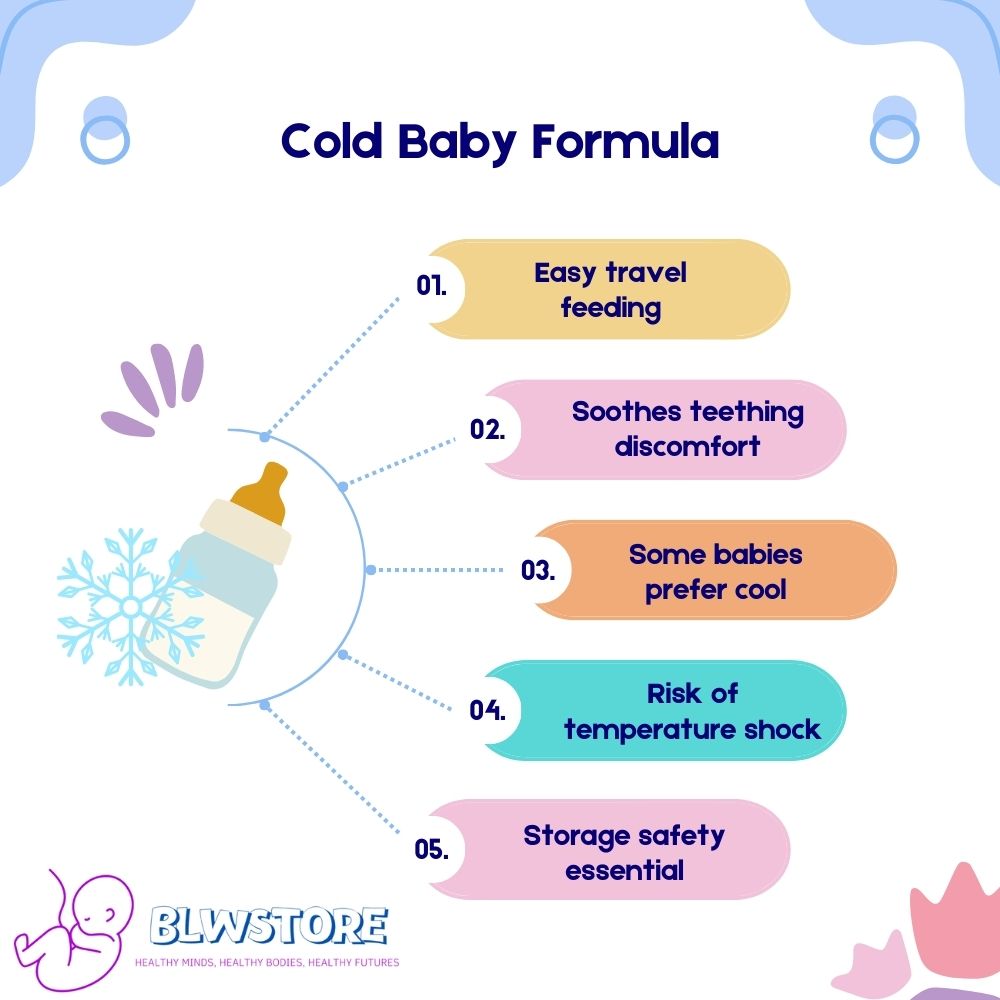
Arguments For And Against Cold Formula
There are arguments for and against feeding babies cold formula.
Some parents argue that chilled formula is a convenient option, especially when on-the-go or during hot weather.
Additionally, some babies may prefer their milk at a cooler temperature, particularly if they are teething or experiencing stomach discomfort.
However, others have concerns about serving cold formula to newborns or young infants.
When served too cold, it can impact the baby’s ability to regulate their body temperature properly, leading to potential health risks.
There’s also the risk of bacterial growth in improperly stored and contaminated formula.
While serving cool formula might seem like an easy way out for busy parents, ensuring safe feeding practices should be a priority.
Risks And Concerns Related To Feeding Cold Formula
Feeding a baby cold formula comes with its fair share of risks and concerns.
First, there’s the issue of bacteria growth in the formula if it’s not properly prepared or stored.
Then, there’s also the risk that the cold temperature can cause stomach discomfort, especially for newborns and full-term babies who may have trouble regulating their body temperature.
It’s important to note that breastmilk is typically served at body temperature, so if your baby prefers warmer milk, it might be best to warm up the bottle slightly before serving.
If cold formula works for your baby and they don’t experience any discomfort from it, there are benefits to consider too – such as convenience when on-the-go and potential relief for hot summer days as we said before.
5 Best Practices For Serving Cold Formula To Your Baby
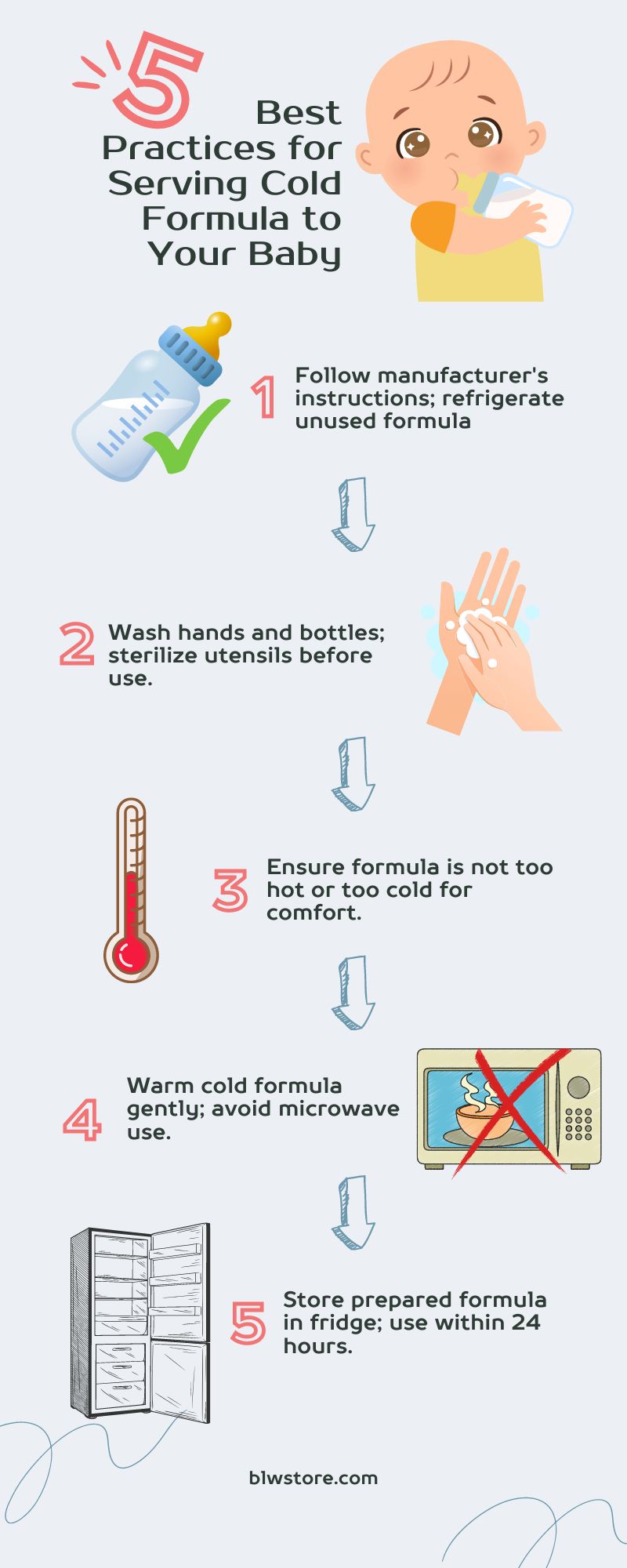
Make Sure The Formula Has Been Properly Prepared And Stored
- Wash hands thoroughly before handling formula or feeding bottles
- Prepare fresh formula for each feeding following the manufacturer’s instructions
- Store unused formula in a clean, covered container in the refrigerator for up to 24 hours
- Sterilize utensils and bottles before use
- Wash bottles with hot soapy water after each use and rinse properly
- Optional: boil bottles for five minutes after washing or use a sterilizer
- Store refrigerated milk at temperatures below 4°C until ready for consumption
Proper preparation and storage of infant formula are essential to ensure safe feeding for your baby.
By washing your hands thoroughly, following manufacturer’s instructions, and storing unused portions in a clean container in the refrigerator, you can minimize the risk of bacterial contamination.
Proper sterilization of utensils and bottles, as well as maintaining appropriate storage temperatures, helps reduce potential health risks associated with incorrect preparation or storage of formula.
Check The Temperature Before Feeding
It’s important to always check the temperature of your baby’s formula before feeding.
A temperature that is too hot can scald your little one’s mouth and throat, while a temperature that is too cold can cause stomach discomfort.
To ensure the proper temperature, you can use a bottle thermometer or simply test the formula on your wrist before giving it to your baby.
If your baby prefers warmer milk, consider using a bottle warmer rather than heating it in the microwave which can create hot spots in the liquid.
If you’re serving chilled formula straight from the fridge, it may be necessary to warm it up slightly first before serving as some babies are sensitive to colder liquids.
As tempting as it might be for busy parents to pre-make several bottles and store them all in the refrigerator, remember that freshly made formula is generally safer if you want something quick and easy at any time of day without worrying about its temperature.
It is recommended to only warm up the formula for some seconds by placing the bottle in a bowl of warm water or using a bottle warmer.
Proper Temperature For Serving Formula
It is essential to serve formula at the proper temperature to ensure its safety and digestibility.
Formula that’s too hot can cause burns, while chilled or cold formula can cause stomach discomfort or lower body temperature in infants.
The CDC recommends serving formula at a temperature between 98°F and 100°F (about body temperature) to avoid these issues.
To achieve this perfect range, parents should warm up the refrigerated or room-temperature formula gently under warm running water or with a bottle warmer.
It is important not to use boiling water, microwave warming, or direct heating as these methods can create hot spots in the bottle and destroy essential nutrients in the milk as we already said before.
Storage Guidelines To Ensure Safe Consumption
Proper storage of infant formula is crucial to ensure its safety and nutritional value.
To keep the formula fresh and uncontaminated, store it in a cool, dry place at room temperature below 77°F (25°C).
Once the formula container has been opened, adhere to the brand’s guidelines for usage to ensure freshness and safety.
It’s important to remember that bottles of prepared formula should be stored in the refrigerator for no longer than 24 hours before being consumed or discarded.
FAQ
1. Can I give my baby cold formula straight from the refrigerator?
Yes, if your baby seems comfortable with cold formula and doesn’t show any signs of digestive issues or discomfort, you can continue to serve it cold.
2. Is there any danger associated with reheating previously prepared formula?
Yes, reheating already-prepared formula can lead to bacterial growth that could cause illness if consumed by your baby.
It’s best to prepare fresh bottles each time you’re ready to feed your little one.
3. How long can I safely store prepared formula before warming it up again for my child?
Prepared formula can be safely stored in the refrigerator for up to 24 hours.
We’re Maria and Alberto, a married couple and educators who are nutrition enthusiasts. Even before we had kids, we were already crazy about nutrition.
We’d read scientific articles, watch videos from nutritionists, and spend hours listening to nutrition podcasts.
Today, we continue doing this, but in a different way, as we’ve learned to sift through the noise and trends. Nutrition, like any other field of knowledge, the more you read and learn, the more you develop a comprehensive understanding of reality, and that’s what has happened to us.
Before having our first child, we focused on learning everything we could about child nutrition, using the same techniques we had already employed, backed by our extensive knowledge in nutrition.
Our mission is to help other parents with their children’s nutrition, to help them become the best versions of themselves.
If we are what we eat and drink, which is absolutely true, let’s do it right!
